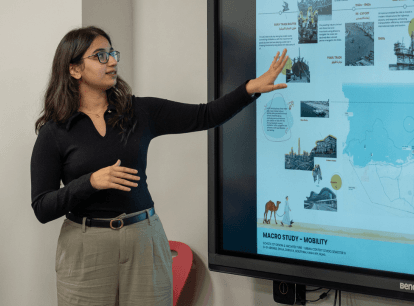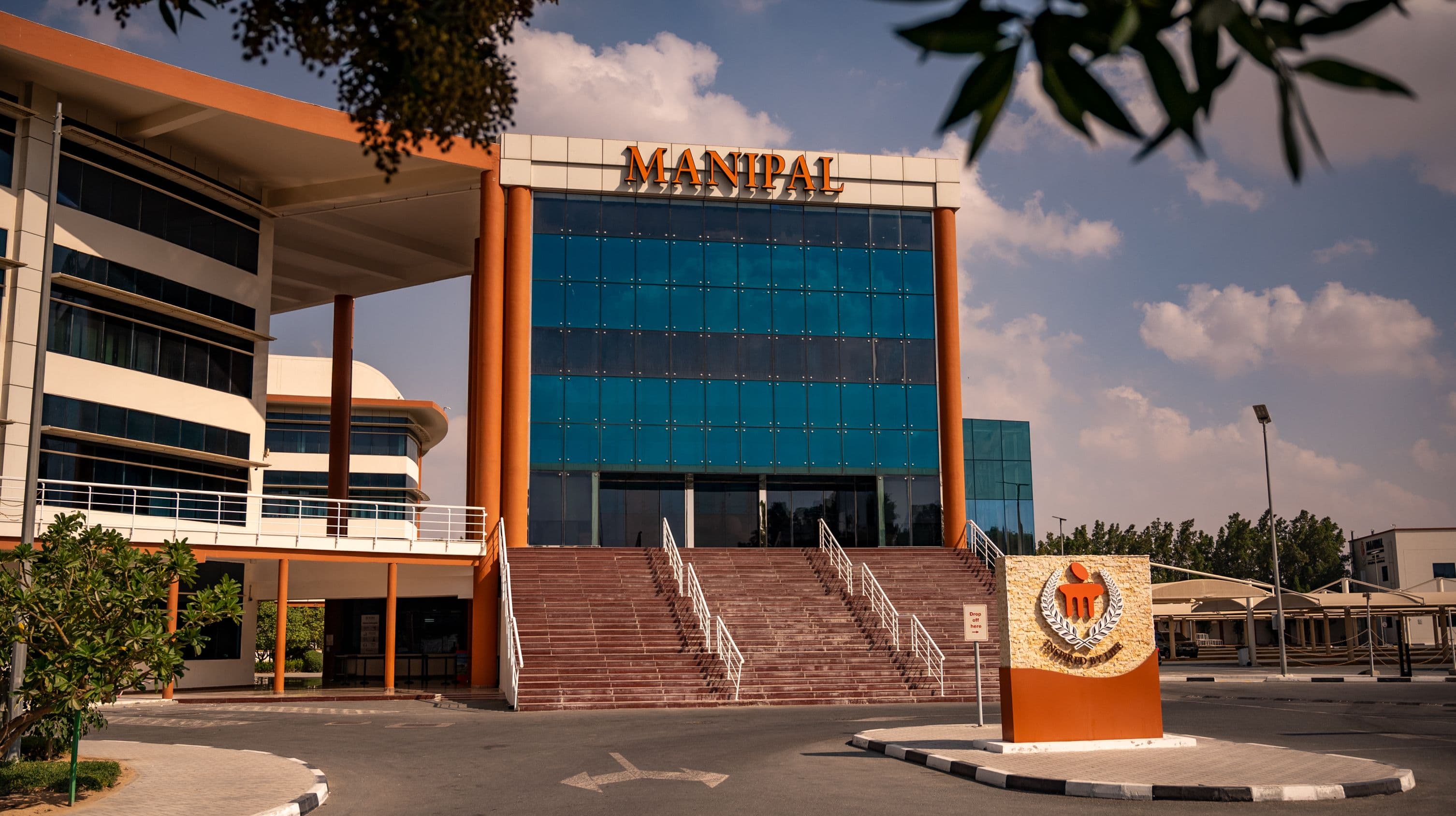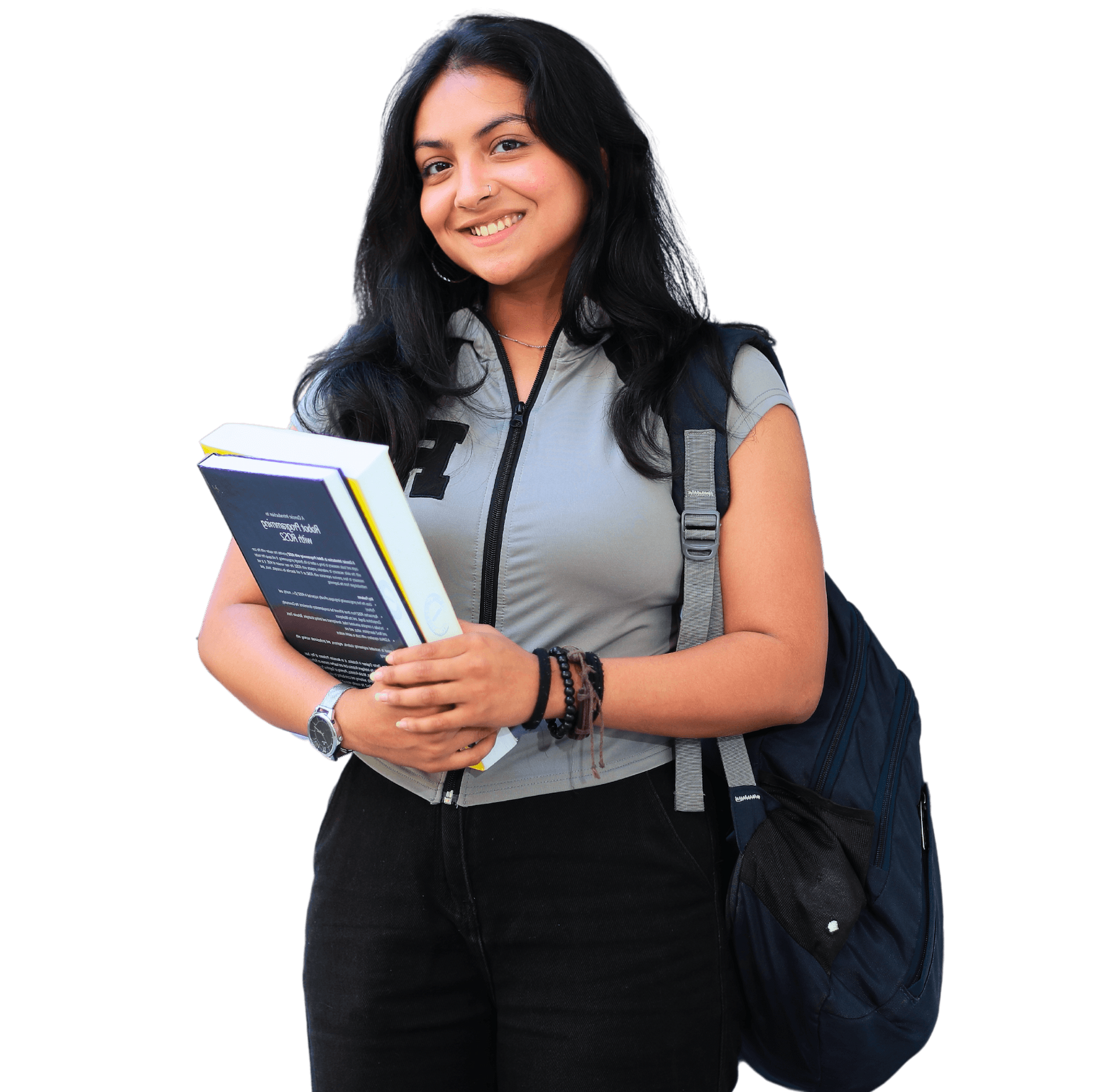The Bachelor of Design in Interior Design (B.Des) program at Manipal Academy of Higher Education, Dubai, is meticulously designed to equip students with the expertise to create functional, safe, and aesthetically captivating interior spaces that resonate with contemporary needs and future trends. This holistic program blends foundational knowledge with advanced design skills, incorporating cutting-edge technologies and methodologies to ensure students are adept at crafting innovative and user-centric solutions. The curriculum seamlessly integrates theoretical instruction with practical application, including hands-on studio projects, internships, and real-world collaborations. Students explore critical domains such as design and color theory, space planning, technical drawing, materials and finishes, and lighting design, while also gaining proficiency in project management, adherence to building codes, product design, and effective communication. The program offers a variety of electives in interior design, categorized into Professional Development, Design Specific, Allied, and Skill Development. Professional Development electives focus on enhancing practical skills, covering topics like user experience, visual rendering, and professional practice. Design Specific electives explore areas like Heritage Interiors and Sustainable Design, blending tradition with innovation. Allied electives, such as Interior Photography and Advanced Computer Graphics, combine visual storytelling with technical expertise. Skill Development electives, including Product Design and Creative Arts, emphasize hands-on learning and artistic refinement. These electives provide a well-rounded approach to developing both creative and practical design skills. The program emphasizes sustainability, cultural sensitivity, and the psychological impact of interior environments, preparing graduates to make responsible and impactful design decisions. This comprehensive approach ensures that graduates are not only skilled in addressing modern challenges but are also poised to excel in diverse professional roles within the dynamic field of interior design.
Starting Date:
Study Mode:
Program Length:
Application Deadline:
Join us for an exciting opportunity to explore all that Manipal Dubai has to offer at our Open Days event for 2026.
Explore MoreThe Bachelor of Interior Design is a four-year course, culminating in an internship during the final semester. Students also have an option to exit after three years with a B.A. (Interior Design), culminating in an internship opportunity in Semester VI.

Admission to the Bachelor of Interior Design program at Manipal Academy of Higher Education, Dubai, is open to students who meet the following criteria:
Graduates of the B.Des in Interior Design from the School of Design & Architecture at Manipal Academy of Higher Education, Dubai, can pursue various careers in design and construction fields. This includes roles like:
The first year lays a foundation focusing on art, design theory, drafting, computer graphics and basic applications. It aims to enhance creative skills and provide students with a comprehensive understanding of the fundamental principles of interior design.
Here is a semester-wise breakdown detailing the course structure:
| Semester 1 | Semester 2 |
|---|---|
| Interior Design Fundamentals – I | Interior Design Fundamentals – II |
| Material and Construction I | Material and Construction II |
| Interior Graphics I | Interior Graphics II |
| History of World Art & Interior Design I | History of Indian Art & Interior Design II |
| Visualization and Representation | Digital Modelling I |
| Principles of Communication Skills | Environmental Studies |
Building on the first year’s insights, the second year focuses on technical skills like rendering, construction techniques, specifications, computer-aided design and space planning. It's designed to strengthen the students’ practical skills in applying their theoretical knowledge to real-world scenarios.
Here is a semester-wise breakdown detailing the course structure:
| Semester 3 | Semester 4 |
|---|---|
| Interior Design Studio– I | Interior Design Studio – II |
| Material and Construction III | Furniture Design and Detailing |
| User Study Processes in Design | Research Methodolgy |
| History of Asian Interior Design | Interior Services -II |
| Digital Modelling-II | Elective (Allied) |
| Interior Services-I | Elective (Skill Development) |
*For information regarding specialisation or elective subjects, refer to the prospectus.
The third year transitions students towards professional readiness, emphasising specialised and research-oriented subjects. This includes design dissertation, project management, professional practice and portfolio preparation, equipping students with the necessary tools for the workplace.
Here is a semester-wise breakdown detailing the course structure:
| Semester 5 | Semester 6 |
|---|---|
| Interior Design Studio–III | Interior Design Studio – IV |
| Landscape Design for Interior Spcaes | Design Dissertation |
| Estimation & Specification | Working Drawing |
| Project Management | Elective (Allied) |
| Elective 1A/2A (Professional Development) | Elective (Skill Development) |
| Elective 1A/2A (Design Specific) | |
| Open Elective |
*For information regarding specialisation or elective subjects, refer to the prospectus. Additionally, students opting for a 3rd-year exit must complete the Internship and Study Report in Semester VI
In the final year, students are prepared for the advanced technological skills required for specific interior styles and typologies. The focus is on the design thesis, electives and professional training, ensuring students are confidently ready to tackle the challenges of the interior design industry.
Here is a semester-wise breakdown detailing the course structure:
| Semester 7 | Semester 8 |
|---|---|
| Thesis | Internship |
| Interior Portfolio Development | |
| Working Drawing -II | Study Report |
| Elective 3A (Professional Development) (Design Specific) | |
| Open Elective |
.


Explore what Manipal Dubai Campus can offer you. From accommodation, study spaces, sports facilities, cafes, restaurants, modern classrooms, advanced labs, and welcoming spaces that inspire learning and creativity.
